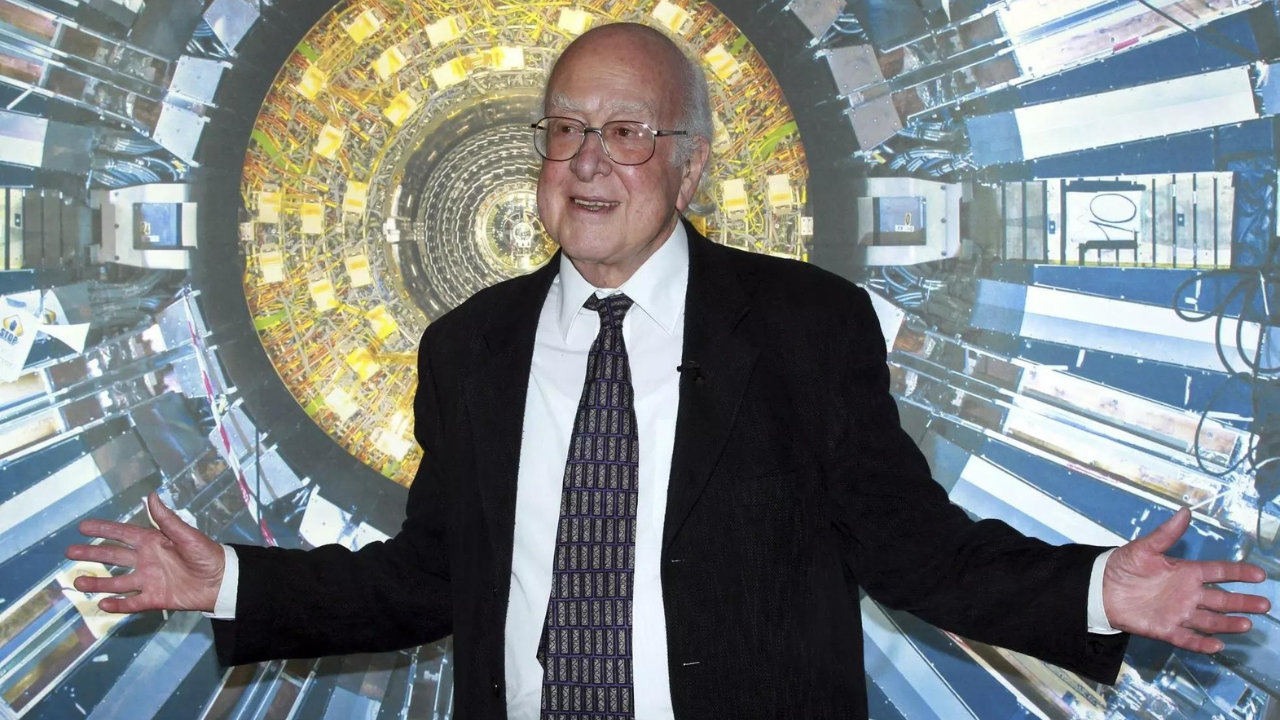NEW DELHI: Nobel laureate Peter Higgs, known for his pivotal role in explaining the mechanism behind mass in the universe, passed away at the age of 94. His groundbreaking theoretical contributions, notably the proposition of a mass-giving particle in 1964, earned him a revered status akin to luminaries such as Albert Einstein and Max Planck in the field of physics.
The theory, which eventually bore the name “Higgs boson” or colloquially termed the “God particle,” led to Higgs and Belgian physicist Francois Englert clinching the 2013 Nobel Prize for Physics.
What was Higgs Boson?
The significance of Higgs’ work lies in its explanation of how fundamental particles acquire mass, a fundamental puzzle in physics. Without the Higgs boson, it’s theorized that the universe as we comprehend it, including ourselves and the material constituents around us, would not exist.
Higgs’ insight into the existence of such a particle dates back to 1946, when as a young lecturer, he had a revelatory moment conceptualizing a field of particles imparting mass. His seminal paper in 1964 spearheaded the idea, though initially met with skepticism even from institutions like CERN.
It wasn’t until the culmination of a prolonged and costly pursuit that CERN, in July 2012, confirmed the existence of a particle consistent with the elusive Higgs boson, marking a watershed moment in particle physics.
What made Higgs Boson the ‘God particle’
The Higgs boson is frequently referred to as “the God particle” due to its purported role in initiating the “Big Bang” event which formed our universe long ago, according to CBS.
This nickname gained popularity rapidly, despite objections from both scientists and clergy, partly because it succinctly describes its supposed function – the Higgs boson serves as the unifying force that imparts matter to everything.
Physicist who stayed away from limelight
Higgs, present at the announcement confirming the existence of a particle in alignment with the elusive Higgs boson, expressed gratification at the validation of his theory after years of anticipation.
Despite the acclaim, Higgs, described as unassuming, shied away from the limelight, with reports suggesting he retreated to a pub upon learning of his Nobel win.
Despite the acclaim and numerous accolades, including the esteemed Wolf Prize in 2004, Higgs declined a knighthood, citing reservations about the political motivations behind the British honors system.
(With agency inputs)
The theory, which eventually bore the name “Higgs boson” or colloquially termed the “God particle,” led to Higgs and Belgian physicist Francois Englert clinching the 2013 Nobel Prize for Physics.
What was Higgs Boson?
The significance of Higgs’ work lies in its explanation of how fundamental particles acquire mass, a fundamental puzzle in physics. Without the Higgs boson, it’s theorized that the universe as we comprehend it, including ourselves and the material constituents around us, would not exist.
Higgs’ insight into the existence of such a particle dates back to 1946, when as a young lecturer, he had a revelatory moment conceptualizing a field of particles imparting mass. His seminal paper in 1964 spearheaded the idea, though initially met with skepticism even from institutions like CERN.
It wasn’t until the culmination of a prolonged and costly pursuit that CERN, in July 2012, confirmed the existence of a particle consistent with the elusive Higgs boson, marking a watershed moment in particle physics.
What made Higgs Boson the ‘God particle’
The Higgs boson is frequently referred to as “the God particle” due to its purported role in initiating the “Big Bang” event which formed our universe long ago, according to CBS.
This nickname gained popularity rapidly, despite objections from both scientists and clergy, partly because it succinctly describes its supposed function – the Higgs boson serves as the unifying force that imparts matter to everything.
Physicist who stayed away from limelight
Higgs, present at the announcement confirming the existence of a particle in alignment with the elusive Higgs boson, expressed gratification at the validation of his theory after years of anticipation.
Despite the acclaim, Higgs, described as unassuming, shied away from the limelight, with reports suggesting he retreated to a pub upon learning of his Nobel win.
Despite the acclaim and numerous accolades, including the esteemed Wolf Prize in 2004, Higgs declined a knighthood, citing reservations about the political motivations behind the British honors system.
(With agency inputs)
Denial of responsibility! Swift Telecast is an automatic aggregator of the all world’s media. In each content, the hyperlink to the primary source is specified. All trademarks belong to their rightful owners, all materials to their authors. If you are the owner of the content and do not want us to publish your materials, please contact us by email – swifttelecast.com. The content will be deleted within 24 hours.


